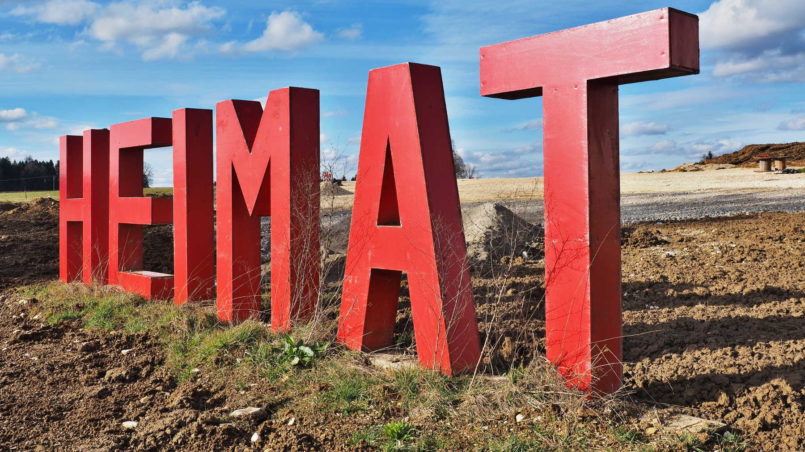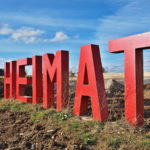What is homeland? The political battle about a term

Event data
- Datum
- 26. 7. 2017
- Host
- Team Stronach Akadmie
- Location
- Team Stronach Akademie, 1050 Wien
- Event-type
- Vortrag
- Participants
- dr. Andreas Unterberger, Autor
On Wednesday, July 26th, I attended a talk on an important topic at the the Team Stronach Akademie. The focus was on the not so simple definition of the term „homeland“, which was made a subject of discussion by Dr. Andreas Unterberger. Andreas Unterberger was editor-in-chief of the „Wiener Zeitung“ and the „Presse“. He is the author of a number of books and runs one of the most successful political blogs in Austria.
First of all he started with the juridical, legal definition, according to which homeland is a changing place of residence. That being said, his father still had a right of domicile in a village in Styria, although he studied in Vienna. This had legal consequences, such as his hometown being responsible for him if his father required nursing care. This right of domicile existed until 1939, then it was abolished.
By the age of 14, this process is emotionally completed. Interestingly enough, this is exactly the age when most people are no longer able to learn a foreign language without an accent. A few examples are Arnold Schwarzenegger and Frank Stronach, who both still have their German accent while speaking English.
The student movement of ’68 was a counter-movement to National Socialism, which strongly exploited the sense of home. Also due to this, the student movement was not very patriotic. In particular, in Austria and Germany, the contempt of the homeland can be found.
Nowadays, you can find less national phenomena in the political area as well. In the ’50s and ’60s, for example, there was still brass band music in the ÖVP, politicians commonly appeared in public wearing the Styrian national costume. This changed in the ’70s, when parties were modernised. Then again, the Freedom Party had the problem that they were still attached to a “Great German” solution, therefore, wanting to make Austria a German federal province. But today, this is no longer the case.
Unterberger then gave a personal insight into the issue of homeland. For him, external things are not that important and also not compulsory, but he is not ashamed of traditional music or traditions, such as the New Year’s Concert. He was a foreign journalist for 20 years and developed a bond to the Asian culture and cuisine, and you not have to drive away for an Italian opera. He is also against the condemnation of every foreign word.
However, he is against people who resist a community which surrounds them, but who, in the same vein, also want to profit from it. This applies to people who are not willing to work. Or, for example, to people who have an immigration background in the second or third generation, who do not speak German and appear veiled in public. These people dissociate themselves from the community. This especially applies to Turkish people and less to other foreigners, for example Asians, black Africans or Norwegians. You would never find Muslims in an Austrian national costume.
He visited Austrian clubs in Canada, and after a short period of time, English was spoken. The Austrian emigrants adapted themselves linguistically to the country already in the first generation.
Until 1870, Germany was fragmented into small nations. However, there was a strong awareness of wanting to be together at that time. The German-speaking part of Austria also felt German. It, therefore, was an emotionally divisive situation. At the same time other forms of nationalism arose in Austria, for example, the South-Slav or the Hungarian. The strongest catalyst of such developments was the language. A Czech still wanted to speak Czech in Vienna. After the defeat of the First World War, almost all of the remaining Austria, except for the radical fringe groups, wanted to become a part of Germany.
Fundamentally, national thinking is nothing negative. It only becomes negative if it does not grant other nations’ rights which are held by themselves, for example when the national borders are not accepted and attempts are made to annex territories. The right of self-determination of peoples, who live in affected areas, is the fairest form to solve such problems. Switzerland is a good example as regards the integration of different cultures.
However, the term homeland is partially experiencing a renaissance again, for example when the former SPÖ governor of Salzburg, Gabriele Burgstaller, appears publicly in a “dirndl”, or how Van der Bellen used the term homeland in his election campaign. At this point, the talk ended and there was a possibility to ask questions.
Credits
| Image | Title | Author | License |
|---|---|---|---|
 |
Home | Kreuzschnabel | CC BY-SA 3.0 |
